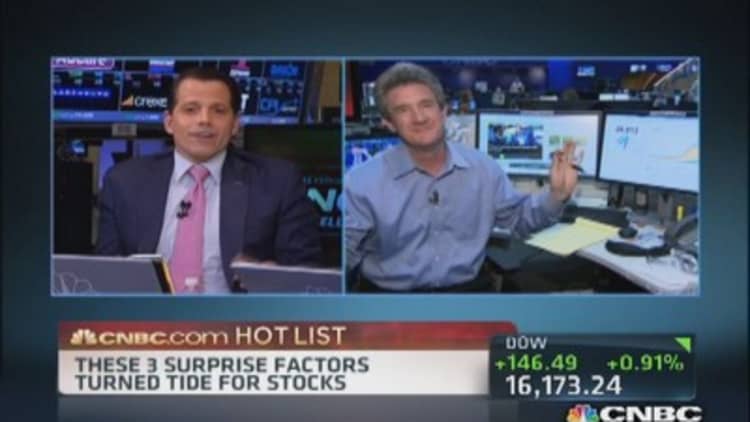
A high-flying City of London executive managed to dodge paying the full fare on his daily commute into London for five years – and took only three days to pay back the £43,000 ($72,000) he owed when he finally got caught.
The city executive, believed to be a hedge fund manager, travelled into the city from a small village to the south east of London called Stonegate, a journey that should have cost him £24.50 each way. Instead he paid less than a third of that by exploiting a loophole in London's electronic "Oyster" ticketing system.
Users of the Oyster card have to "tap in" on a machine at the destination they are leaving from, then "tap out" at the exit barriers on the other end. If a commuter does not tap in, they will be charged a maximum £7.20 on the other end of the journey when they tap out.
Read MoreRussian millionaires splurge $200,000 in bar tab battle
The fare dodger exploited this loophole by entering at the start of his journey without paying and then accepting the fine for not having "tapped in."
There are no ticket barriers at Stonegate station so the fare-dodger jumped on a train which ended up in London Bridge. From there he crossed over to service that took him to Cannon Street and exited this station by tapping out, incurring the £7.20 charge.
A spokesperson for Southeastern, the train company running the service from Stonegate, told CNBC that it believed the man had been doing the scam for five years, since 2008 until the end of last year.
"That was the suspicion but there has been no admission of guilt on that point," the spokesperson said during a phone interview.
Read MoreInside hedge fund pay: $10M for a 10 percent return
The passenger paid the rail company back £42,550 in dodged fares in an out-of-court settlement and £450 legal cost within three days. The ability for the man to pay back the £42,550 sum highlights the high-flying nature of the hedge fund industry in a country where the average annual salary is around £24,900.
Southeastern told CNBC that one of its officers spotted the man paying the £7.20 fare and this raised suspicions. The hedge fund manager was questioned and "further investigation" by the train company found the man had stopped buying a season ticket for his commute in 2008. Within a few days of being stopped, the passenger renewed his season ticket raising further concern.
"We recognize that this issue is important to customers who pay their way and expect the system to treat them with fairness by acting against people who don't buy tickets," Southeastern said in a statement released on Monday.
"This case highlights the cost of fare evasion to the industry and the scale of the penalties that individuals face when caught. We hope it will act as a deterrent, particularly given that the sum involved is far above the average earnings of most of the fare-paying public."


